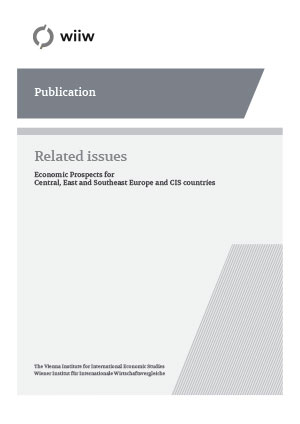HUNGARY: Medium-term Forecast and Risk Assessment
Following the successful 1995 stabilization, the Hungarian economy entered a growth path that is characterized by strong export and investment growth and a much less dynamic increase of consumption. The growth acceleration has not resulted in external imbalances as was invariably the case in the last decades. Growth was coupled with an exceptionally rapid pace of modernization in industry which dramatically changed the composition of industrial output and exports. The driving force of these changes has been the foreign-owned sector.
The elections in 2002 and the intensified preparations for accession to the EU (assumed to take place in 2005) are the issues which may decisively influence the medium-term prospects of the Hungarian economy.
In this paper two scenarios for Hungary's economic performance in the period 2001-2004 are presented. According to the baseline scenario there will be a moderate political business cycle in 2001-2002 with a somewhat higher increase of domestic use than GDP growth. Following the necessary corrective measures to put a brake on household consumption growth, assumed to be introduced in late 2002 or early 2003, no further menace to the external equilibrium will be in sight until the end of the period in question. It will be possible to maintain an about 5% annual average GDP growth over the years concerned.
In scenario B it is assumed that household consumption is getting out of control in 2001 and 2002. The resulting deterioration of the external equilibrium will necessitate resolute and painful corrective measures which reduce household consumption growth to a marginal pace in 2003. GDP growth will be less dynamic from 2002 on, only 3-4% annually. Foreign debt of the country will start to grow again.
The realization of the baseline scenario is thought to be twice as likely as that of scenario B.
In the last two pre-accession years, 2003 and 2004, investments are expected to increase rapidly due to the obligations related to the acquis compliance. As the ratification of the Accession Treaty by the 15 EU members is thought to take place in these years, the strict observance of the obligations undertaken in the Accession Treaty seems unavoidable, setting thus the hardest constraint to the selection of economic policy priorities. The impact of the accelerated investment activities on the current account will be negative, but this is assumed to be overcompensated by stepped-up FDI and portfolio investments typically having occurred to countries immediately before their accession to the European Union.
Keywords: Hungary, medium-term forecast, risk assessment
JEL classification: O11, O19, O40, O52
Countries covered: Hungary, Visegrad countries
Research Areas: Macroeconomic Analysis and Policy
